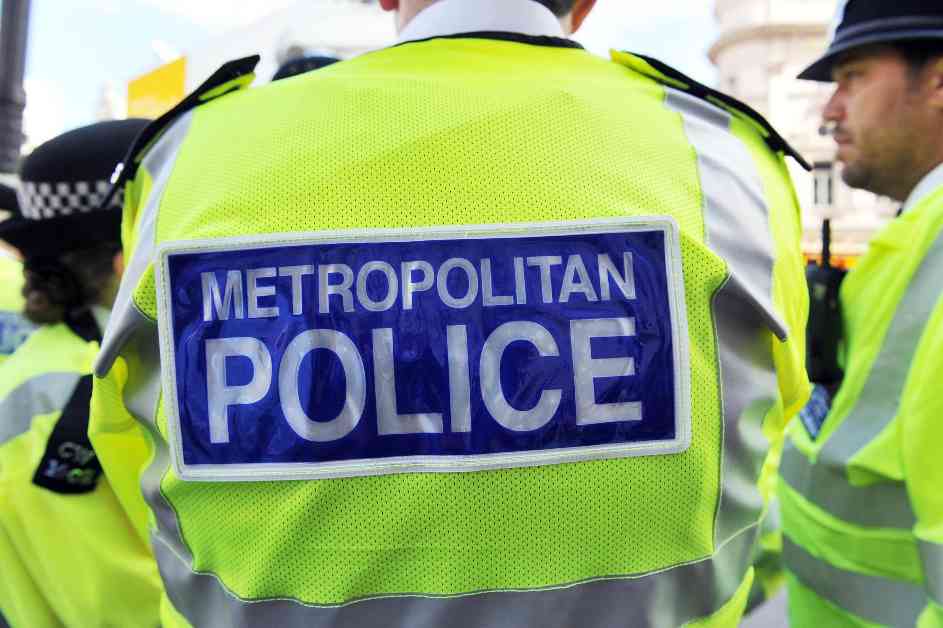Unlawful Detainment of Young Boy in Croydon Stop and Search
In a disturbing incident in Croydon, London, two Metropolitan Police officers, Pc McCorley Clewes and former Pc Benjamin Morgan, were found to have committed misconduct during a stop and search involving a 14-year-old black schoolboy. The incident took place on June 23, 2022, at around 5.30pm on Blackhorse Lane following reports of a stolen mobile phone. The officers had received a report that four black boys aged around 14 were involved in the robbery of a phone from a 13-year-old boy, with one of the robbers allegedly claiming they had a knife, although no knife was seen by the victim.
The boy, referred to as Child B, was alone near the location of the robbery wearing a hoody, which matched the description provided. As a result, he was stopped for a search. However, what followed was deeply troubling. The schoolboy was handcuffed, taken to the ground, and restrained. He remained handcuffed for an extended period, both during the search and after it was completed, despite nothing incriminating being found on him. The boy, who was visibly upset, explained to the officers that he had just come from school and was wearing his school uniform under the hoody.
The boy’s mother lodged a complaint with the Met Police, which prompted an investigation by the Independent Office for Police Conduct (IOPC). The incident, which was witnessed by members of the public, was captured on mobile phone footage by a bystander. The IOPC analyzed this footage along with the officers’ body-worn video to assess the situation.
Findings and Consequences
After a thorough investigation, an independent panel appointed by the Met concluded that the officers’ actions constituted misconduct. Specifically, they were reprimanded for their excessive use of force in handcuffing the child for an extended period, failing to make reasonable adjustments for the boy, and breaching integrity standards by pressuring the child for his details and threatening to contact his school.
Pc Clewes was issued a final written warning for two years, while former officer Morgan, who had already resigned from the force, could not be sanctioned. The IOPC highlighted the inadequacy of the officers’ approach, particularly considering the boy’s young age, small stature, and the presence of four officers during the stop and search. The use of excessive force and the failure to consider the child’s well-being were particularly concerning, as noted by bystanders who raised objections to the officers’ actions at the time.
IOPC regional director Mel Palmer emphasized the need for the Met Police to reflect on the incident and implement necessary changes. The investigation identified areas for improvement, particularly in the visual identification of suspects and the enforcement of policies related to stop and search procedures. Refresher training was recommended as part of the corrective measures.
Impact on the Community
The unlawful detainment of the young boy in Croydon not only raised questions about police conduct but also sparked outrage and concern within the community. Incidents like these erode trust in law enforcement and exacerbate existing tensions, especially in marginalized communities. The disproportionate targeting of black individuals, particularly young boys, underscores the need for systemic changes to address issues of bias and discrimination within the police force.
The emotional distress experienced by the boy and the trauma inflicted by the unnecessary use of force highlight the urgent need for police accountability and reform. Community members, advocates, and activists have called for transparency, accountability, and justice in cases of police misconduct. The incident serves as a reminder of the importance of upholding human rights, dignity, and respect in all interactions with the public.
Lessons Learned and Moving Forward
The case of the young boy in Croydon serves as a sobering reminder of the consequences of unchecked power and the importance of holding law enforcement accountable for their actions. It underscores the need for ongoing training, oversight, and policy reforms to prevent similar incidents from occurring in the future. By learning from past mistakes and actively working to address issues of bias, discrimination, and excessive use of force, police departments can rebuild trust and foster positive relationships with the communities they serve.
Moving forward, it is essential for the Met Police and other law enforcement agencies to prioritize de-escalation, community engagement, and cultural competency in their interactions with the public. Building trust, promoting transparency, and upholding accountability are crucial steps in fostering a safer and more equitable society for all individuals. By addressing systemic issues and implementing meaningful reforms, police departments can work towards rebuilding trust and ensuring justice for all members of the community.












